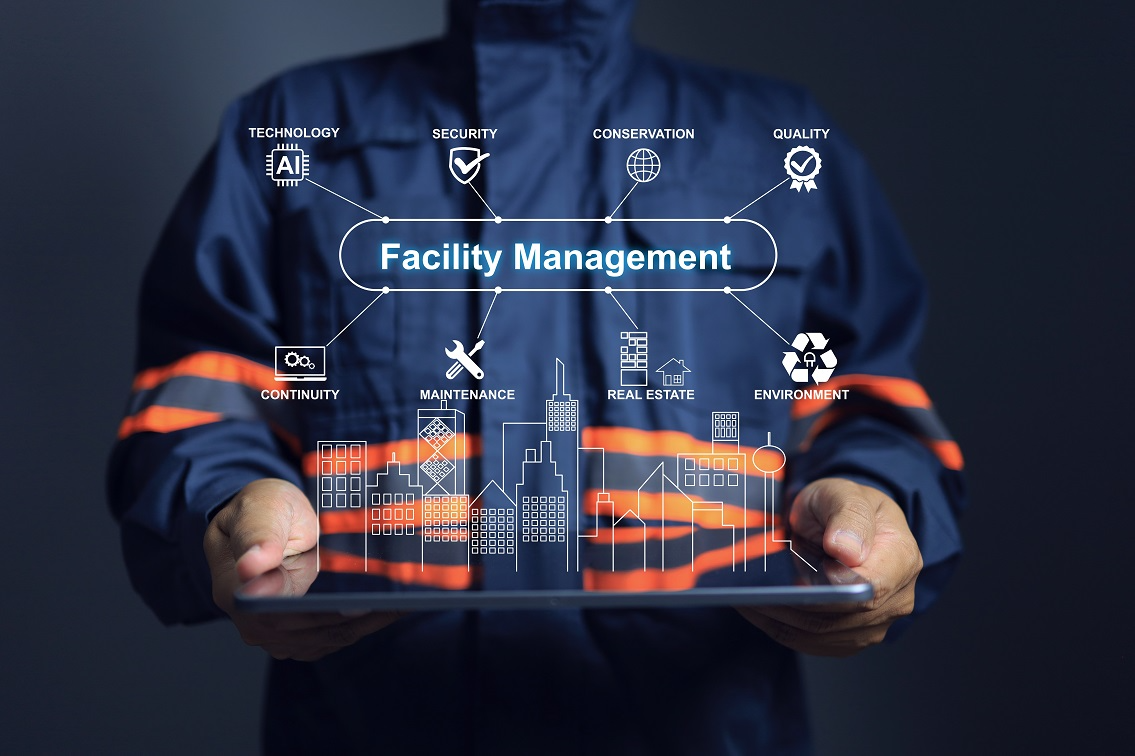Why Total Facility Management Is Crucial for Contemporary Enterprises
Why Total Facility Management Is Crucial for Contemporary Enterprises
Blog Article
Leading Advantages of Total Facility Management for Streamlined Workflow
Total Facility Management (TFM) represents a strategic technique to boosting operational effectiveness by integrating different services, such as upkeep and safety and security, under a unified management framework. The concern remains: what certain benefits can companies harness from adopting TFM, and exactly how might these advantages change their functional landscape?
Boosted Operational Effectiveness
Enhanced operational performance is a main advantage of implementing total facility management (TFM) methods. TFM includes a detailed method to taking care of a center's resources, processes, and facilities, inevitably simplifying procedures. By consolidating numerous solutions-- such as maintenance, security, area, and cleansing management-- TFM improves and reduces redundancies control amongst different functional features.
The assimilation of innovation more intensifies this performance. Advanced facility management systems supply real-time data analytics, enabling facility managers to make informed choices that boost process and resource appropriation. Anticipating upkeep strategies, for instance, prepare for equipment failures prior to they take place, minimizing downtime and prolonging property lifespan.
Additionally, TFM promotes standard procedures throughout numerous divisions, making certain consistency and top quality in service distribution. This uniformity reduces operational interruptions and promotes an extra joint workplace. Consequently, employees can concentrate on their core responsibilities, driving performance and boosting general efficiency.

Price Reduction and Financial Savings
Carrying out total facility management (TFM) not just increases functional effectiveness but likewise dramatically contributes to set you back decrease and financial savings. By combining different services under a solitary management framework, organizations can get rid of redundancies and streamline procedures, thus decreasing functional costs. TFM enables much better purchase techniques, enabling firms to negotiate bulk getting arrangements with distributors and company, bring about lower rates.
Additionally, TFM emphasizes preventive maintenance, which decreases unanticipated malfunctions and expands the life expectancy of important tools. This positive approach not only lowers repair prices but also enhances the integrity of facilitiess, ensuring nonstop procedures. In addition, energy efficiency initiatives, often a crucial emphasis of TFM, bring about significant financial savings on energy expenses, as facilitiess are enhanced for lowered power usage.
Improved Source Management
Efficient resource management is a foundation of total facility management (TFM), allowing organizations to optimize the usage of their properties and labor force. By executing TFM techniques, organizations can comprehensively examine their source allotment, making certain that every property is utilized successfully and effectively. This all natural method allows for the recognition of underperforming sources and the capacity for reallocation or improvement.
Furthermore, TFM helps with the assimilation of technology for real-time tracking of resources, which assists in predicting maintenance needs and stopping pricey downtime. By leveraging information analytics, companies can make enlightened choices about resource deployment, inevitably boosting performance and lowering waste.
Moreover, TFM advertises a society of constant renovation, urging teams to on a regular basis examine and refine their resource management methods. Total Facility Management. This proactive position not just reduces operational disruptions yet also promotes advancement, as staff members are empowered to suggest enhancements based on their direct experiences with resource usage
Streamlined Communication Channels
In total facility management, streamlined communication networks play a critical duty in fostering cooperation and effectiveness across teams. Efficient interaction makes sure that all stakeholders, including facility managers, maintenance staff, and provider, are aligned with functional requirements and organizational objectives. By developing clear lines of communication, teams can promptly attend to problems, share updates, and carry out services, thus decreasing downtime and enhancing performance.
With centralized interaction platforms, information is quickly accessible, permitting for real-time updates on upkeep demands, source allotment, and task timelines. This transparency not only decreases misconceptions yet likewise empowers employees to make educated decisions quickly. Structured interaction facilitates far better control throughout emergency situations, making certain that all employees are notified and can respond quickly.

Raised Concentrate On Core Activities
A vital benefit of total facility management is the enhanced concentrate on core tasks, allowing companies to focus on their key service purposes - Total Facility Management. By contracting out non-core features such as security, maintenance, and cleansing, companies can redirect their sources and power in the direction of strategic efforts that straight add to their competitive benefit and development
Total facility management incorporates different functional tasks under a solitary umbrella, fostering efficiency and lessening redundancy. This right here debt consolidation not only improves processes but additionally enhances liability, guaranteeing that every facet of the facility operates sympathetically without diverting interest from what absolutely matters-- core business features.
Additionally, this approach enables employees to dedicate their effort and time to tasks that drive development and improve consumer fulfillment, instead than obtaining bogged down by functional obstacles. With a dependable facility management partner dealing with day-to-day procedures, companies can attain higher dexterity, respond promptly to market changes, and preserve a sharper focus on their mission.
Ultimately, raised focus on core tasks leads to enhanced general performance, permitting companies to enhance their market setting and fulfill their critical objectives better. - Total Facility Management
Verdict
In conclusion, Total Facility Management considerably boosts functional efficiency by combining important services and leveraging information analytics for notified decision-making. Price reductions and boosted source management add to general savings, while streamlined communication channels foster collaboration among stakeholders.
Total Facility Management (TFM) stands for a critical method to boosting operational performance by incorporating different solutions, such as upkeep and safety and security, under a unified management structure.Boosted functional effectiveness is a primary benefit of carrying check out total facility management (TFM) techniques. Advanced facility management systems offer real-time data analytics, making it possible for facility supervisors to make enlightened choices that boost operations and source allotment.Applying total facility management (TFM) not just improves functional efficiency yet likewise significantly adds to set you back reduction and savings.Efficient source management is a foundation of total facility management (TFM), enabling organizations to enhance the use of their properties and workforce.
Report this page